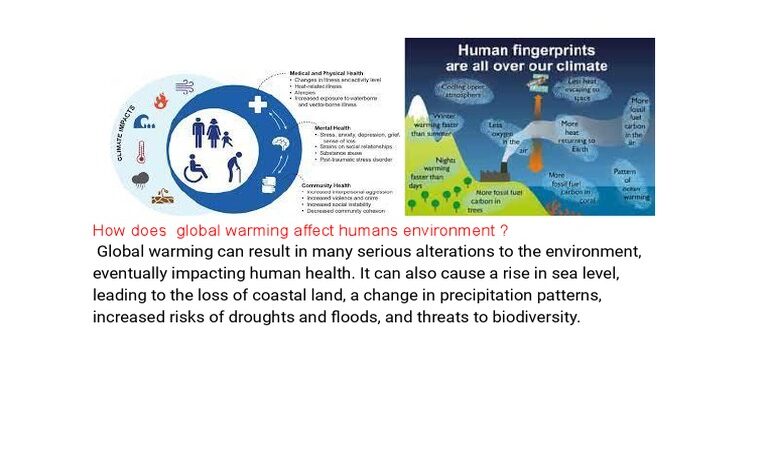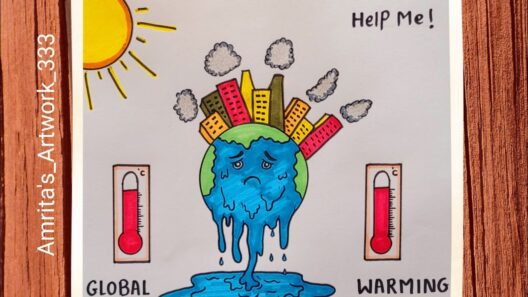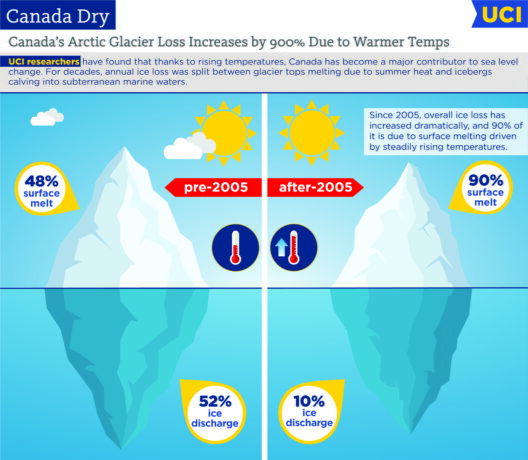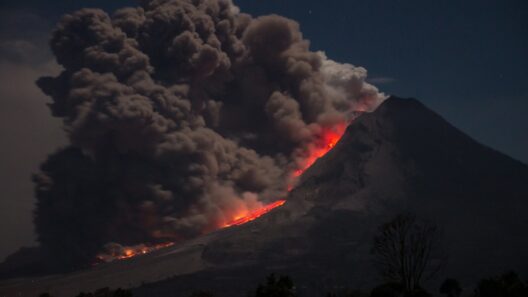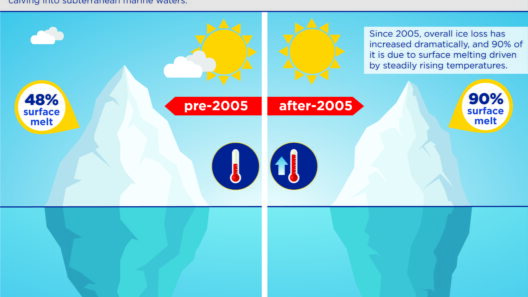Global warming is an omnipresent phenomenon, subtly weaving its effects into the fabric of human existence. The question arises: how can global warming change human behavior and, by extension, the future of our planet? As temperatures rise, ice caps melt, and extreme weather becomes commonplace, the ramifications extend beyond the physical realm into the psychological and sociocultural domains.
At first glance, one might not see an immediate connection between rising temperatures and human behavior. However, the interplay is intricate. Climate change catalyzes a chain reaction that influences mental health, migration patterns, economic stability, and social dynamics. The nuances of these changes challenge societal norms and compel individuals to rethink their habits and values.
One of the most evident behavioral shifts is the growing concern for environmental sustainability. As awareness of climate-related crises proliferates, more individuals are becoming advocates for eco-friendly practices. This shift signifies a critical juncture where personal responsibility intersects with collective action. People are trading in gas-guzzling vehicles for bicycles or public transport, not merely out of necessity, but out of a burgeoning sense of ethical obligation toward the planet.
Yet, this transformation poses a playful question: will the average person adopt sustainable practices voluntarily, or will climate-induced scarcity and crises force their hand? As resources dwindle and natural disasters escalate, actions once considered optional may become a necessity. This challenge could lead to a paradigm shift where the collective mindset pivots from convenience and consumption to conservation and responsibility.
The relationship between climate change and mental health cannot be overlooked. Studies indicate that rising temperatures can exacerbate anxiety and depression, particularly in vulnerable populations. How does a scorching summer, fraught with wildfires and catastrophic storms, influence an individual’s psyche? The omnipresent fear of loss—loss of home, of health, and even of identity—as communities face displacement instills a profound sense of instability. This psychological toll may precipitate changes in behavior, pushing people to seek solace in community-oriented endeavors or, conversely, to retreat into isolation.
In many instances, climate change leads to pronounced migratory trends. Triggered by dwindling resources and uninhabitable conditions, this phenomenon raises questions about cultural integration and societal cohesion. Large-scale migrations create a demographic shift, challenging local infrastructures and social norms. People may find themselves in the paradoxical position of both conserving their cultural heritage while simultaneously adapting to new environments. Will society embrace this influx, or will it foster xenophobic tendencies? The answer lies within the frameworks of empathy and human connectivity.
The economic ramifications of climate change also provoke shifts in human behavior. As industries related to fossil fuels face existential threats, emerging green technologies represent new pathways for employment and innovation. The challenge for future generations will be in fostering an economic landscape that prioritizes sustainability without compromising personal livelihoods. How will individuals adapt to a job market that increasingly demands skills in renewable energy and conservation? Retraining and continuous learning will become the hallmarks of a workforce ready to tackle the challenges of a warming world.
Education plays a pivotal role in this transformation. Armed with knowledge, future generations can innovate solutions to the problems posed by climate change. Educational institutions are obliged to cultivate a curriculum that emphasizes environmental science, sustainability practices, and social responsibility. In this context, students will not just be passive learners but active participants in shaping the future. They might pose the question, “How can I contribute to a healthier planet?”—a question that could influence their career choices, consumer habits, and societal engagements.
Moreover, societal structures are likely to undergo significant transformations. Community-based initiatives are essential in fostering resilience against climate change. As the effects become more pronounced, local communities may band together to create grassroots movements aimed at sustainability and recovery. Imagine neighborhoods collectively implementing green roofs, urban gardens, or solar energy initiatives. Such collaboration imbues a sense of agency and reinforces social bonds that climate change threatens to fray.
This communal spirit could also engender a renewed appreciation for nature. As urbanization encroaches on natural landscapes, individuals might find solace in outdoor experiences, leading to an increase in environmental stewardship. Recreation may shift from indoor leisure activities to immersive experiences in nature, fostering a deeper connection to the earth. Will future generations find joy in exploring treks and trails instead of screens? This shift might cultivate an intrinsic respect for biodiversity, prompting efforts to preserve fragile ecosystems.
In conclusion, the intersection of global warming and human behavior presents both challenges and opportunities. The ways in which climate change reshapes societal norms, economic structures, and personal mindsets will undoubtedly influence the future of our planet. From heightened environmental awareness to the psychological impacts of displacement, the implications are vast and varied. As we navigate this complex landscape, the pivotal question remains: how will we respond? Only time will reveal the trajectory we choose in the face of unprecedented challenges, but one thing is certain—active participation in the conversation and actions toward sustainability will be imperative. The future of our planet hinges not just on scientific advancements but on our collective willingness to adapt, innovate, and advocate for a more sustainable world.



